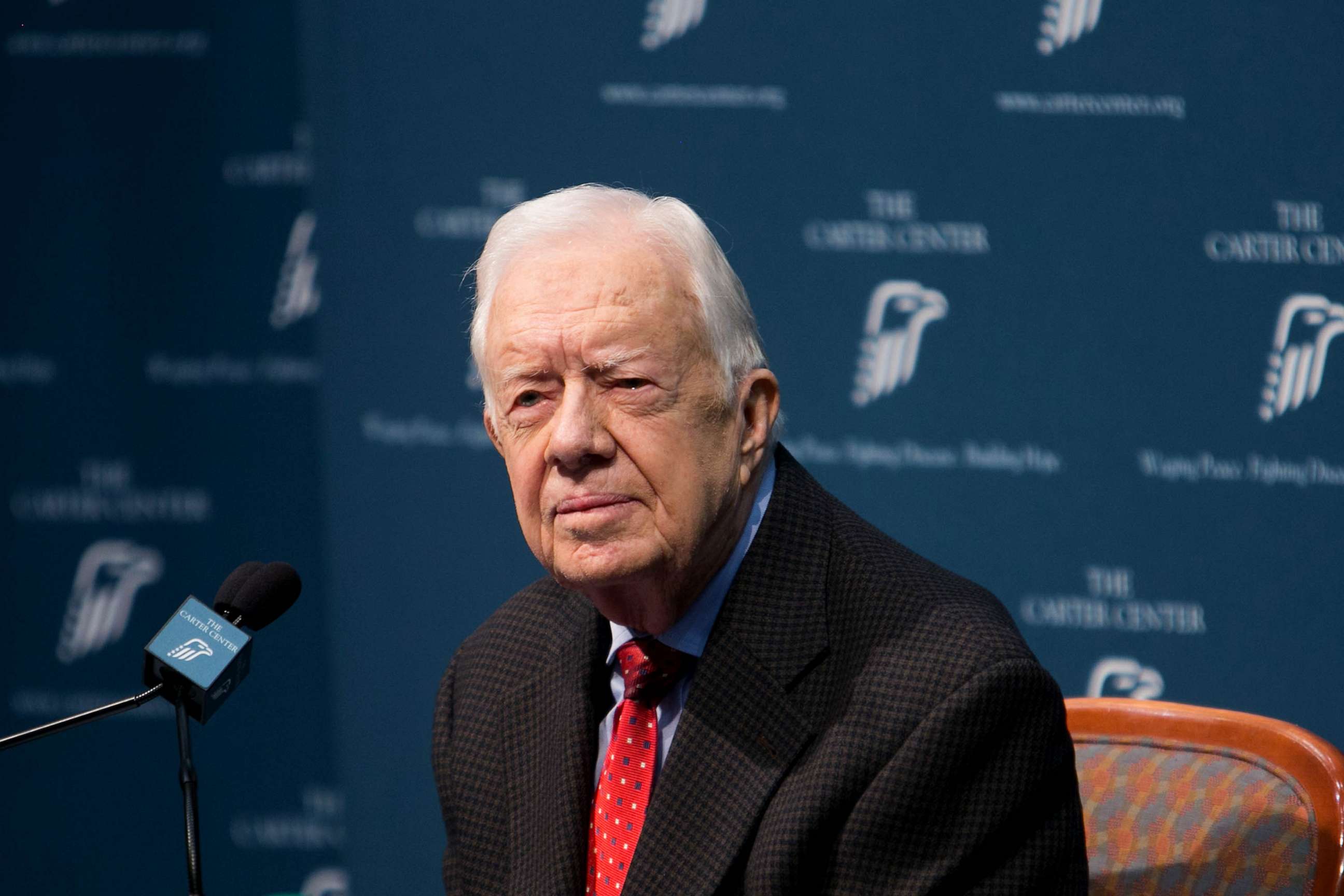Former President Jimmy Carter won the Nobel Peace Prize in 2002, which at the time seemed to end decades of dedication to international humanitarian work after he left the White House.
Instead, he continued to work for several years, a legacy that is receiving renewed attention when he died at the age of 100.
After serving one term as president and losing the election to Ronald Reagan, Carter and his wife, Rosalynn Carter, founded an eponymous organization in Georgia dedicated to conflict resolution and the promotion of human rights, public health and democracy around the world.
The Carter Center, the primary vehicle for Carter’s work, was founded in 1982, a year after he left the White House.
Jimmy Carter’s advocacy of peaceful solutions to global conflicts helped strengthen his reputation as a global statesman, a commitment he emphasized when he received the Nobel Prize on December 10, 2002.
“War can sometimes be a necessary evil. But however necessary, it is always evil, never good. We will not learn to live together in peace by killing each other’s children.” he said then
The center’s website states that it is guided by Jimmy and Rosalynn Carter’s principles, which include a “fundamental commitment to human rights and the alleviation of human suffering” and “seeks to prevent and resolve conflict, enhance freedom and democracy.” and improve health”.
Since its inception, the center has implemented programs around the world in both democracy promotion and public engagement with government and global health.
Among other achievements, the center highlights The work monitors 113 elections in 39 countries. Specifically, the center has recently observed elections in Myanmar, Bolivia, Ivory Coast, Guyana, Tunisia and Nepal, and is currently working on projects to expand women’s access to information in Liberia, Bangladesh and Guatemala.

Former President Jimmy Carter speaks during a news conference at the Carter Center on August 20, 2015 in Atlanta.
Jessica Mcgowan/Getty Images, FILE
Elsewhere, the center is “supporting a human rights-based approach to the Israeli-Palestinian conflict,” working to implement the 2015 peace deal in Mali and ameliorate the humanitarian crisis in Syria, the kind of work that won Jimmy Carter the Nobel Peace Prize. in 2002
“What I get out of it is a commitment to peace, to respect international law,” Jimmy Carter said. October 11, 2002 after announcing that he was the winner of the award that year.
As a result of Jimmy Carter’s success in brokering a peace treaty between Israel and Egypt in the White House, the center eventually became a diplomatic broker outside of official government channels, as the former president himself met with world leaders in places like North Korea, where In 1994, he helped establish the treaty between Washington and Pyongyang on nuclear issues.
In addition to democracy promotion and conflict resolution, the center has long been involved in a number of global health programmes, including the fight against Guinea worm, river blindness, trachoma, schistosomiasis, lymphatic filariasis and malaria.
“We believe that access to health care is a human right, especially among the poor with neglected, neglected and often hopeless illnesses,” Jimmy Carter said in a quote. It appears on the center’s website. “Knowing that someone cares not only relieves physical pain, but can also remove an element of alienation and anger that can lead to hatred and violence.”
Thanks to these efforts, the Norwegian Nobel Committee unanimously decided to award the peace prize to the former president in 2002.
At the time, he lamented the growing inequality of world wealth, linking it to many of the world’s greatest challenges.

Former U.S. President Jimmy Carter and his wife Rosalyn put a tarp on the front of a Habitat for Humanity house under construction on June 10, 2003 in LaGrange, Georgia.
Erik S. Lesser/Getty Images, FILE
“Of all the possible options, I decided that the most serious and universal problem is the widening gap between the richest and poorest people on earth. The citizens of the ten richest countries are now seventy-five times richer than those living in the ten poorest. And the gap between nations is widening every year. not only, but also within them”, he said he said in 2002.
“The results of this inequality are the root causes of most of the world’s unsolved problems, including hunger, illiteracy, environmental degradation, violent conflict and unnecessary diseases ranging from Guinea worm to HIV/AIDS.”
In addition to working at their center, Jimmy and Rosalynn Carter worked for Habitat for Humanity for decades, often volunteering themselves to help build homes for those in need.
“Habitat provides a simple but powerful way to bring people from diverse backgrounds together to achieve the most meaningful things in life,” Jimmy Carter once said. “A decent home, yes, but also a real bond with our friends. The connection that comes with building walls and breaking barriers.”

